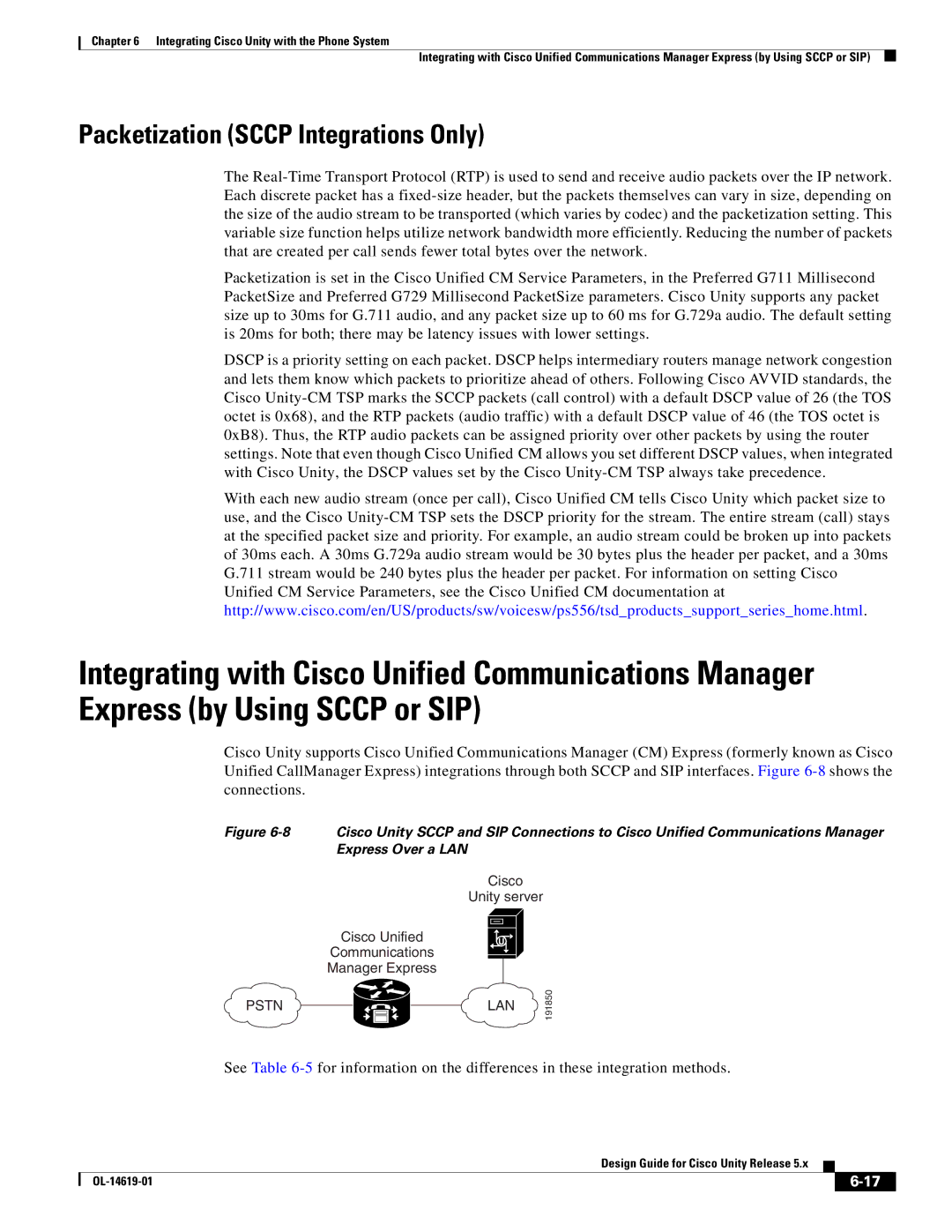
Chapter 6 Integrating Cisco Unity with the Phone System
Integrating with Cisco Unified Communications Manager Express (by Using SCCP or SIP)
Packetization (SCCP Integrations Only)
The
Packetization is set in the Cisco Unified CM Service Parameters, in the Preferred G711 Millisecond PacketSize and Preferred G729 Millisecond PacketSize parameters. Cisco Unity supports any packet size up to 30ms for G.711 audio, and any packet size up to 60 ms for G.729a audio. The default setting is 20ms for both; there may be latency issues with lower settings.
DSCP is a priority setting on each packet. DSCP helps intermediary routers manage network congestion and lets them know which packets to prioritize ahead of others. Following Cisco AVVID standards, the Cisco
With each new audio stream (once per call), Cisco Unified CM tells Cisco Unity which packet size to use, and the Cisco
Integrating with Cisco Unified Communications Manager Express (by Using SCCP or SIP)
Cisco Unity supports Cisco Unified Communications Manager (CM) Express (formerly known as Cisco Unified CallManager Express) integrations through both SCCP and SIP interfaces. Figure
Figure
PSTN
Cisco Unity SCCP and SIP Connections to Cisco Unified Communications Manager Express Over a LAN
Cisco
Unity server
Cisco Unified
Communications
Manager Express
LAN | 191850 |
|
See Table
|
| Design Guide for Cisco Unity Release 5.x |
|
| |
|
|
| |||
|
|
|
| ||
|
|
|
| ||
